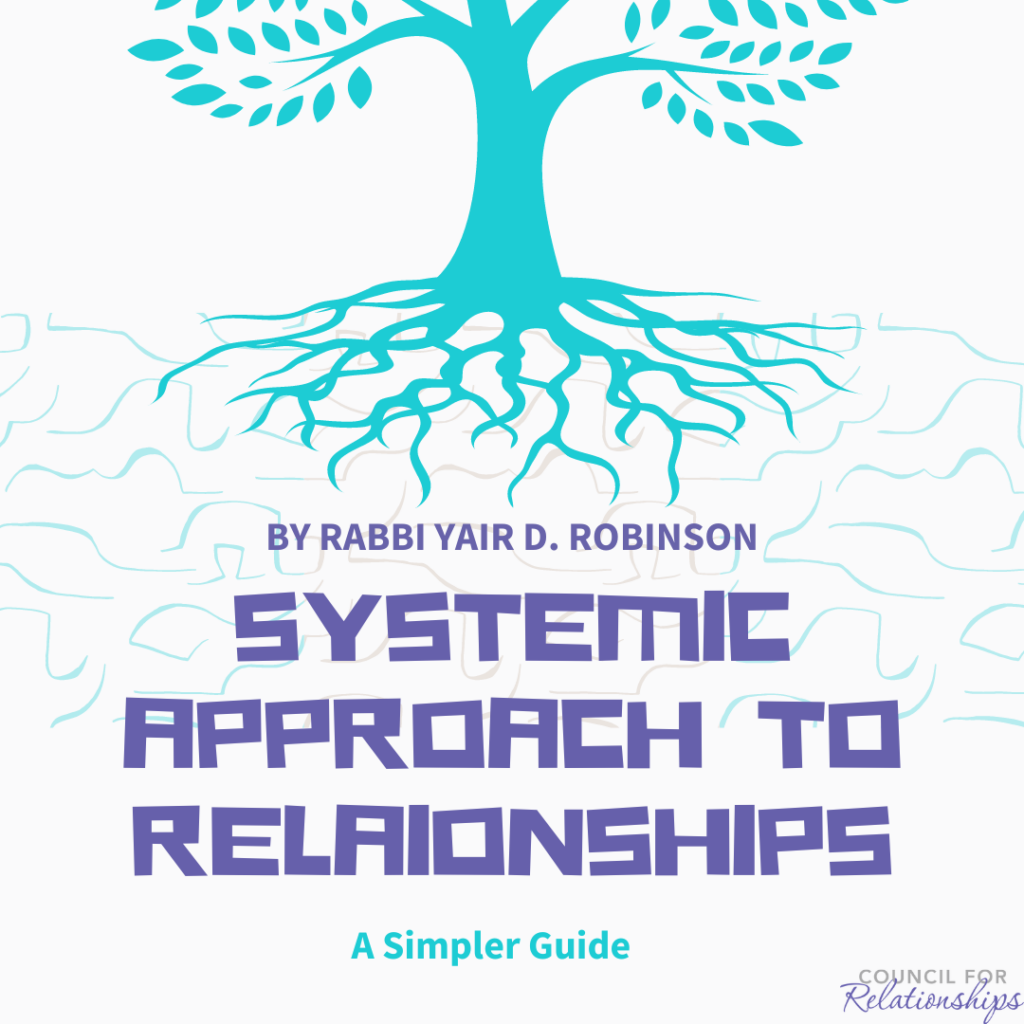Systemic Approach to Relationships: A Simpler Guide
In human relationships, patterns often shape behaviors and influence how we interact with each other. As a rabbi and therapist-in-training, I’ve learned that using a systemic approach to relationships helps us understand these patterns better. This approach deepens our understanding of why certain behaviors continue and gives us tools to foster healing and stronger connections.
My work with family systems theory, Narrative Therapy, and attachment theory has improved my work with communities and individuals. It has allowed me to be more compassionate and effective in my daily interactions.
Understanding Family Systems in Community Dynamics
Family systems theory emphasizes understanding people as part of a family unit, where each member influences the others. The theory uses tools like the Genogram, a family tree that maps emotional relationships and patterns across generations. This family tree identifies recurring issues and reveals how past events shape current behaviors.
When I first became a rabbi, I encountered traditions in my community that I thought needed change. However, by applying family systems theory, I realized these traditions were not outdated rituals but responses to past traumas or significant events. Understanding this helped me approach these traditions with more empathy and respect.
This systemic approach to relationships guided the community in honoring its past while remaining open to necessary changes.
The Power of Narrative Therapy in a Systemic Approach
Narrative Therapy is another crucial part of a systemic approach to relationships. This therapy emphasizes the stories we tell ourselves and how these stories shape our identity and actions. In religious communities, these stories often include inherited beliefs about who we are and what our faith represents.
Outdated or harmful beliefs can root these narratives, making them less beneficial. Narrative Therapy allows us to reframe these stories, aligning them with our current values and goals.
Narrative Therapy helps us rewrite these stories, allowing individuals and communities to reclaim their identities in ways that match their current values and goals. For example, in a Jewish context, we often hear stories about suffering and endurance. While these stories are historically important, they may not fully capture the diverse experiences of modern Jewish life. Revisiting these stories through a systemic approach to relationships helps us understand our past and imagine a future that reflects a broader, more inclusive view of our community.
This reimagining process is about changing the story and recognizing our power to shape our narrative. It allows communities to redefine their mission and identity in ways that stay true to their traditions while responding to today’s challenges.
Relationships and Healing: Buber’s Relational Approach and Attachment Theory
Martin Buber, a Jewish philosopher, introduced the concept of “I-Thou” relationships. These relationships encourage us to engage with others as whole beings, building meaningful and mutual connections. This idea aligns closely with therapy goals, emphasizing genuine, empathetic connections between the therapist and client.
As a rabbi, I’ve used this concept to deepen relationships within my community. Instead of seeing members as just part of a group, I focus on each person’s unique needs and experiences. This shift has led to more meaningful interactions and stronger bonds.
Attachment theory, developed by John Bowlby and Mary Ainsworth, supports Buber’s ideas by showing how early relationships with caregivers influence our ability to form secure attachments later in life. This understanding is especially useful in a community setting. For example, individuals with insecure attachments from childhood may struggle with trust and openness within the community. Recognizing these patterns allows me to adjust my approach to help them feel more secure and supported.
In one memorable case, a community member who had always been distant became more engaged after several conversations where I applied these principles. By acknowledging their fears and offering consistent support, I built a level of trust that eventually led to their deeper engagement with the community. This experience reinforced the importance of understanding the underlying dynamics that influence our relationships, whether in a family unit, a community, or any other group.
Bringing It All Together: The Systemic Approach to Relationships
Using a systemic approach to relationships that combines family systems theory, Narrative Therapy, and attachment theory, I’ve learned that relationships—whether in a family, community, or larger group—are complex systems influenced by many factors. Understanding how these factors interact helps us navigate challenges and foster healthier, more supportive relationships.
In my journey as a rabbi and therapist-in-training, these approaches have significantly deepened my empathy and connection with those I serve. I’ve seen their powerful impact in helping individuals and communities achieve better health and functionality.
In conclusion, a systemic approach to relationships offers a valuable framework for understanding and improving the relationships that shape our lives. Whether we’re addressing family dynamics, community challenges, or personal struggles, these methods provide the tools we need to create meaningful change. I’m excited to see their positive impact on the communities I serve and the individuals I support.
About the Clergy Track at CFR
The Clergy Track in Council for Relationships’ Postgraduate Certificate Program in Marriage and Family Therapy equips clergy and religious leaders to combine clinical skills with their pastoral work. This program offers specialized training in systemic and relational approaches to therapy, helping clergy better support their faith communities. The curriculum includes courses on family systems theory, trauma-informed care, and pastoral counseling tailored to the unique needs of religious professionals.
Learn more about the program by visiting our Clergy Track webpage. For more information, contact Rev. Dr. Dolores Littleton, the Director of the Clergy Track.

Rabbi Yair D. Robinson (pictured here)
About Rabbi Yair D. Robinson
Rabbi Yair D. Robinson has served Congregation Beth Emeth in Wilmington, Delaware, since 2009. A dedicated spiritual leader, Rabbi Robinson is also a recent graduate of the Council for Relationships’ Congregational and Family Systems Certificate program, where he deepened his understanding of systemic and relational approaches to therapy, integrating these insights into his work with faith communities and individuals.
If you or someone you know could benefit from professional therapy, request an appointment with one of Council for Relationships’ therapists today. We’re here to support you on your journey to healing and growth.
If this is an emergency, please call 911 or contact the National Suicide Prevention Lifeline by dialing 988.
More Mental Health Blogs from CFR Therapists & Psychiatrists
CFR’s therapists, psychiatrists, and other mental health professionals offer much more to explore! Check out the CFR Expert Voices blog for great mental and emotional health advice on managing anxiety, understanding family dynamics, exploring attachment theory in therapy, improving relationships, and much more. To get first access to our Expert Voices blog, join our mailing list!
If you enjoyed this blog on the systemic approach to relationships, check out these other fantastic CFR Expert Voices blogs:

